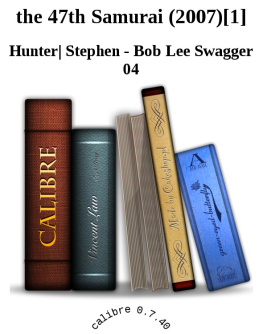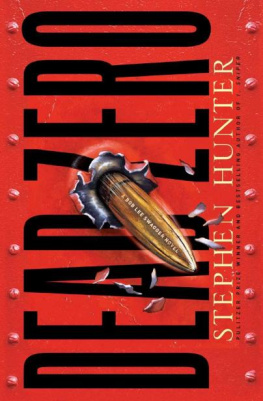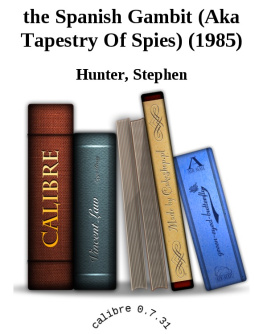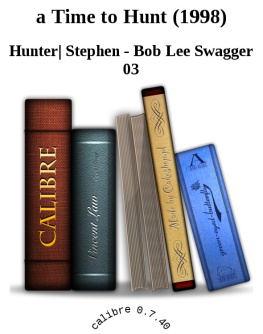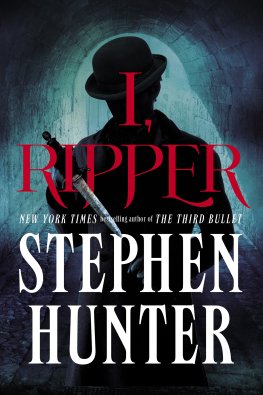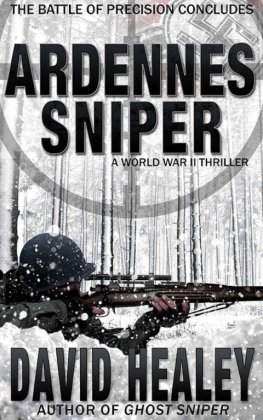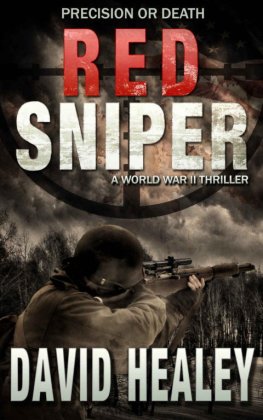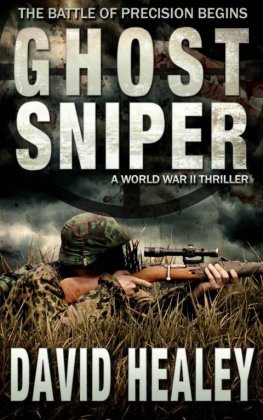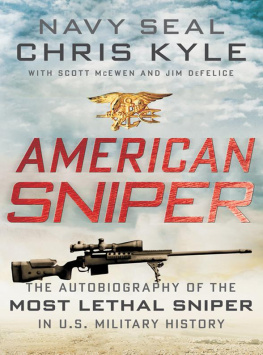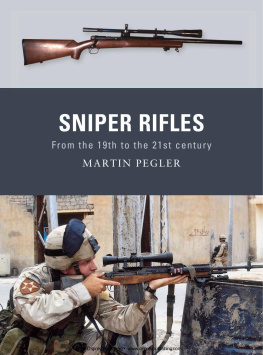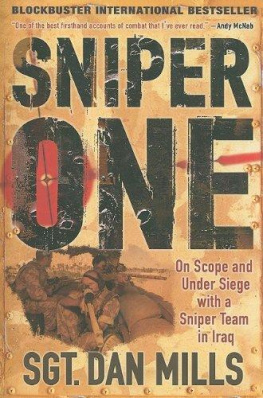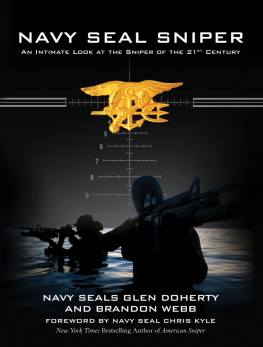The Master Sniper
Ste ph en Hunter
*
PART ONE
Schiitzenhaus (Shooting Gallery) January-April 1945 The guards in the new camp were kinder.
No, Shmuel thought, not kinder. Be precise. Even after many years of rough treatment he took pride in the exactness of his insights. The guards were not kinder, they were merely indifferent. Unlike the pigs in the East, these fellows were blank and efficient. They wore their uniforms with more pride and stood straighter and were cleaner. Scum, but proud scum; a higher form of scum.
In the East, the guards had been grotesque. It was a death factory, lurid, unbelievable, even now eroding into fantastic nightmare. It manufactured extermination, the sky above it blazed orange in the night for the burning of corpses in the thousands. You breathed your brothers. And if not selected out in the first minutes, you were kept caked in your own filth. You were Untermensch, subhuman. He had survived in that place for over a year and a half and if a large part of his survival was luck, a large part also was not.
Shmuel came by the skills of survival naturally, without prior training. He had not lived a hardy physical life in the time he thought of as Before. He had in fact been a literary type, full of words and ideas, a poet, and R believed someday he would write a novel. He had written bold commentaries for Nasz Przeglad, Warsaw's most influential Yiddish newspaper. He'd been the friend of some real dazzlers too, Mendl Elkin, Peretz Hirschbein, the radical Zionist poet Uri Zvi Greenberg, Melekn Ravitch, to name but a few. They were great fellows, talkers, laughers, great lovers of women, and they were probably all dead now.
Shmuel had not thought of literature since 1939. He rarely thought at all of Before, knowing it the first sign of surrender. There was only now, today. Perhaps tomorrow as well, but one could never be too sure.
But he persisted in his literary habits in just one way: he insisted on looking into the center of things. And he'd been puzzling over this strange new place for days now, ever since he'd arrived.
They'd been trucked in; that in itself was an astonishment, for the German way was to herd Jews through forests and if some--or many--died along the way, well, that was too bad. But a truck had bounced them in cold darkness for hours, and Shmuel and the others had sat, huddled and patient, until it halted and the canvas blanketing its back was ripped off.
"Out, Jews, out! Fast, fast, boys!"
They spilled into snowy glare. Shmuel, blinking in the whiteness of it, saw immediately he was at no Konzentrationslager. He knew no German word for what he saw: a desolate forest setting, walls of pine and fir, sheathed in snow, looming beyond the wire; and within the compound just three or four low wooden buildings around a larger one of concrete. There were no dogs or watch towers either, just laconic SS boys dressed in some kind of forester's outfit, dappled in the patterns and shadows of deep trees, with automatic guns.
More curiosities became evident shortly and if the other prisoners cared merely for the ample bread, the soup, the occasional piece of sausage that it had become their incredible good fortune to enjoy, Shmuel at least would keep track.
In fact he and his comrades, he quickly came to realize, were still another oddity of the place. Why had the Germans bothered to gather such a shabby crew of victims?
What do we have in common, Shmuel often wondered, we Jews and Russians and Slavic types? There were twenty-five others and in looking at them he saw only the outer aspects of himself in reflection: small, wiry men, youngsters many of them, with that furtive look that living on the edge of extinction seems to confer.
Though now it was a fact they lived as well as any German soldier.
Besides the food, the barrack was warm. Other small privileges were granted: they were allowed to wash, to use latrines. They were given the field gray flannels of old Wehrmacht uniforms to wear and even issued the great woolen field coats from the Russian front. Here Shmuel experienced his first setback.
He had the bad fortune to receive one that had been hacked with a bayonet. Its lining was ripped out.
Until he solved this problem, he'd be cold.
And then the labor. Shmuel had had the SS for an employer before at the I. G. Farben synthetic fuel factory--the rule was double-time or die. Here, by contrast, the work was mostly listless digging of defensive positions and the excavation of foundations for concrete blockhouses under the less-than-attentive eye of a pipe-smoking SS sergeant, an amiable sort who didn't seem to care if they progressed or not, just as long as he had his tobacco and a warm coat and no officers yelling at him. Once a prisoner had dropped his shovel in a fit of coughing. The sergeant looked at him, bent over and picked it up. He didn't even shoot him.
One day, as the group fussed in the snow, a young corporal came out to the detail.
"Got two strong ones for me? Some heavy business in Shed Four," Shmuel heard the young man ask.
"Hans the Kike."
The sergeant sucked reflectively on his pipe, belched out an aromatic cloud of smoke, and said, "Take the two on the end. The Russian works like a horse and the little Jew keeps moving to stay warm." And he laughed.
Shmuel was surprised to discover himself "the little Jew."
They were taken over to some kind of warehouse or supply shed just beyond the main building. Boxes were everywhere, vials, cans. A laboratory? wondered Shmuel uneasily. A small man in civilian clothes was already there. He did not glance at them at all, but turned to the corporal and said, "Here, those, have them load them up and get them over to the Main Center at once."
"Yes, Herr Ingenieur-Doktor," said the corporal, and when the civilian fellow left, the corporal turned to Shmuel and said quite conversationally, "Another Jew, you know. They'll come for him one day." Then he took them to the corner of the room, where two wooden crates were stacked, and with a wave of the hand indicated to the prisoners to load them onto a dolly.
Each crate weighed around seventy-five kilos and the prisoners strained to get them down and across the room to the dolly. Shmuel had the impression of liquid sloshing weightily as he and the Russian crab-walked the first one over, yet there was nothing loose about the contents. The twin runes of the SS flashed melodramatically in stencil across the lid, and next to them, also stamped, was the mighty German eagle, clutching a swastika. The designation WVHA also stood out on the wood and Shmuel wondered what it could mean, but he should not have been wondering, he should have been carrying, for the heel of his boot slipped and he felt the crate begin to tear loose from his fingers. He groped in panic, but it really got away from him and his eyes met the Russian's in terror as the box fell.
It hit the cement floor with a thud and broke apart.
The Russian dropped to his knees and began to weep piteously. Shmuel stood in fear. The room blurred in the urgency of his situation. Askew on the cement, a great fluffy pile of excelsior spewing out of it like guts, the box lay broken on the floor. An evil-smelling fluid spread smoothly into a puddle.
The civilian returned swiftly.
"You idiots," he said to them.
"And where were you while these fools were destroying valuable chemicals?
Snoozing in the corner?"
"No, sir, Herr Ingenieur-Doktor," lied the young corporal.
"I was watching closely. But these Eastern Jews are shifty. I just wasn't fast enough to prevent--" The civilian cut him off with a laugh.
"That's all I get from the Waffen SS is excuses. Have them clean it up and try not to drop the other crates, all right?"
"Yes, Herr Ingenieur-Doktor. My apologies for failing at--" "All right, all right," said the civilian disgustedly, turning.

